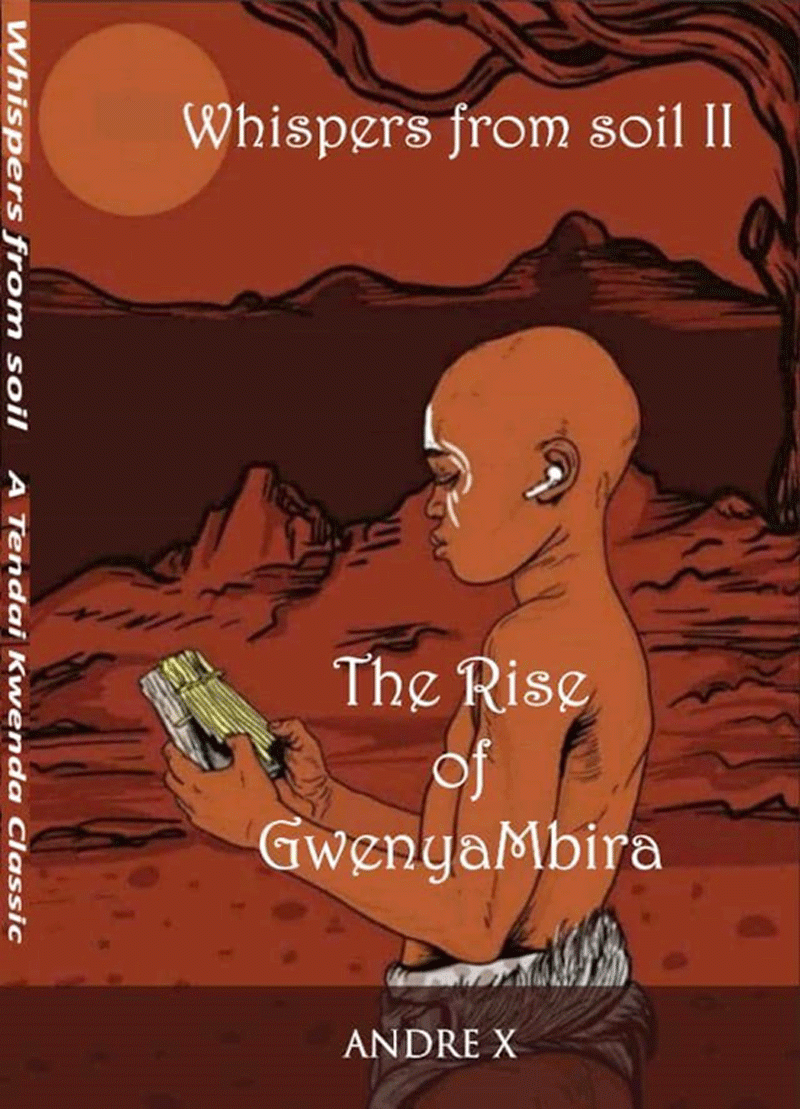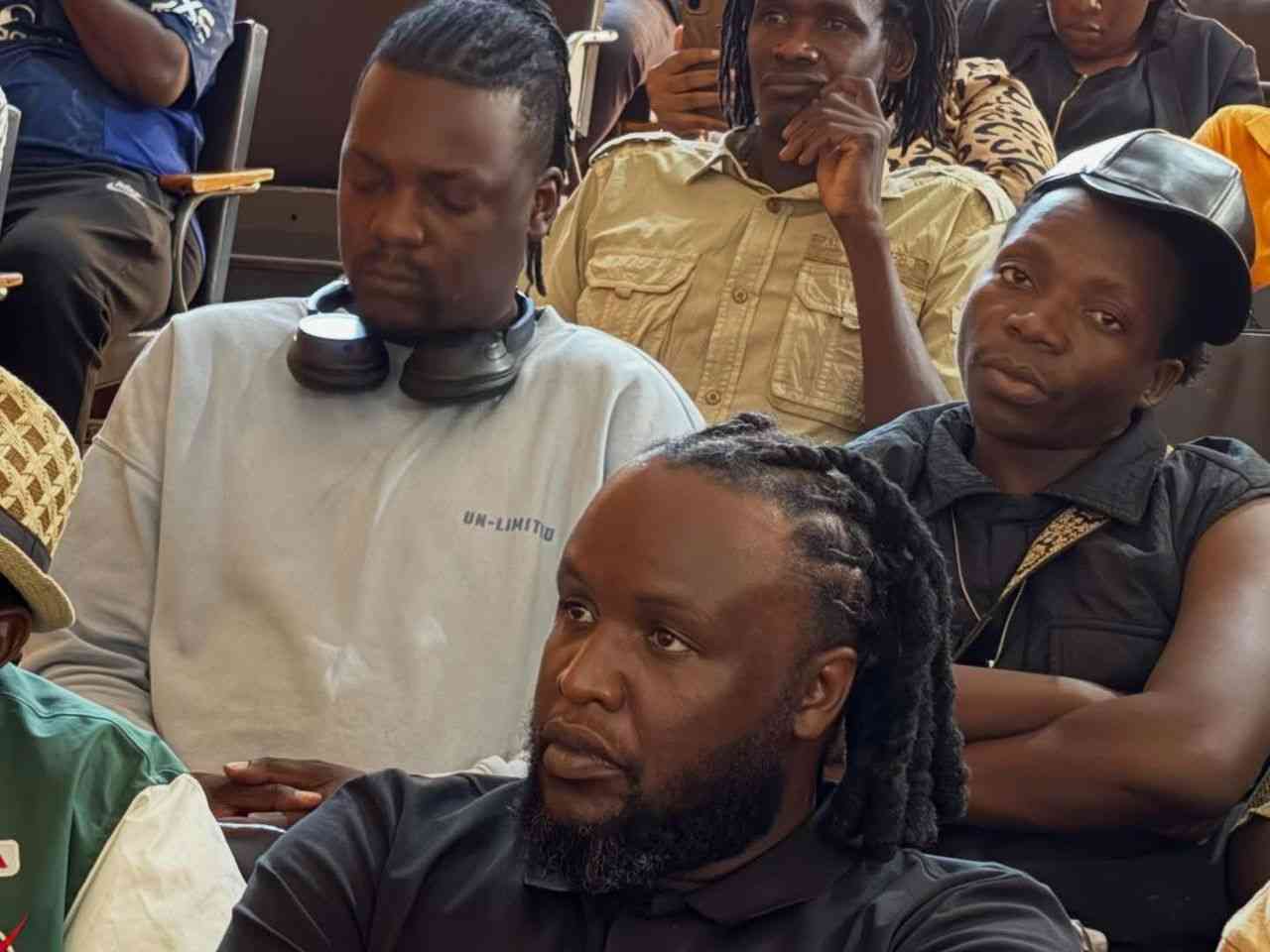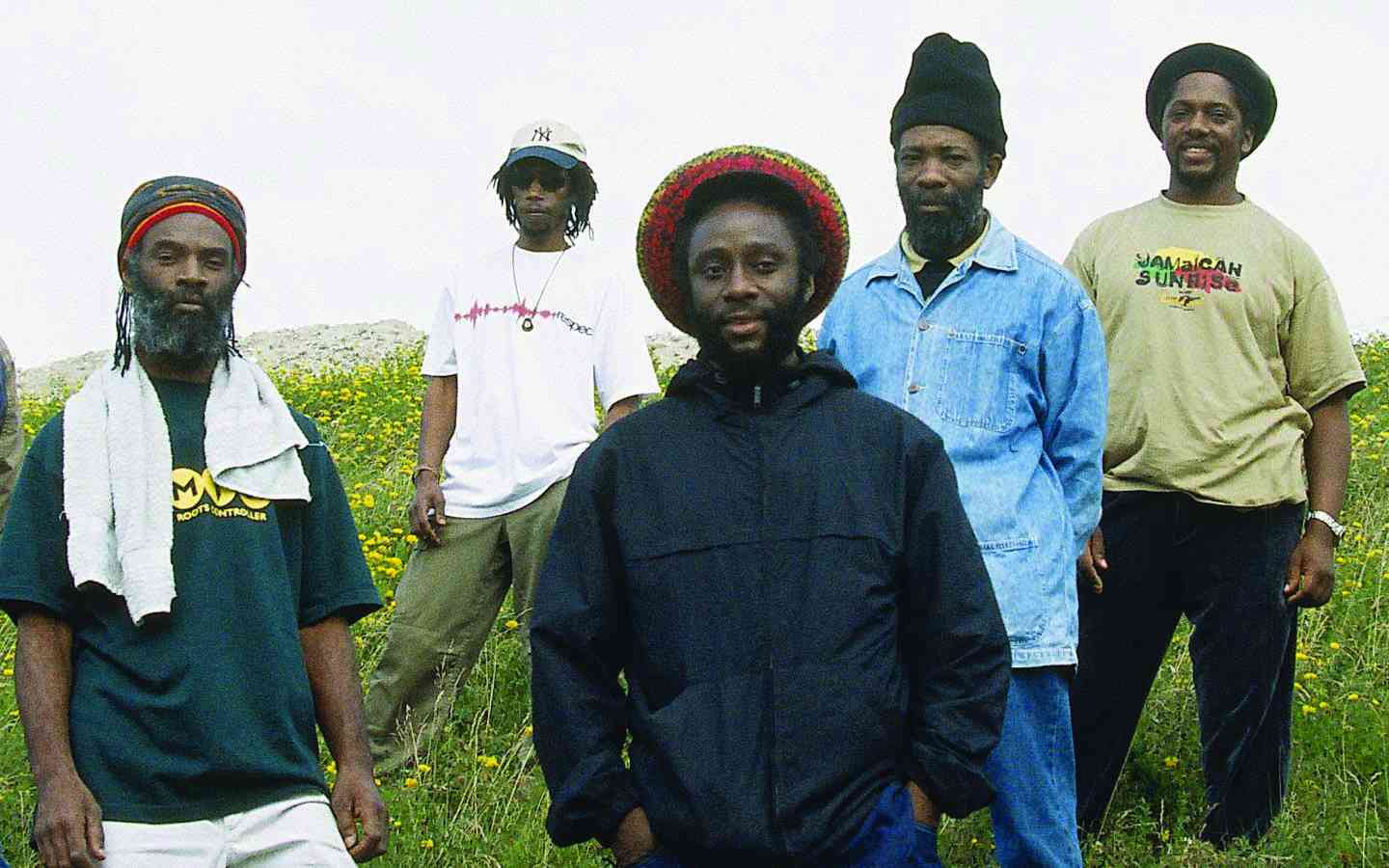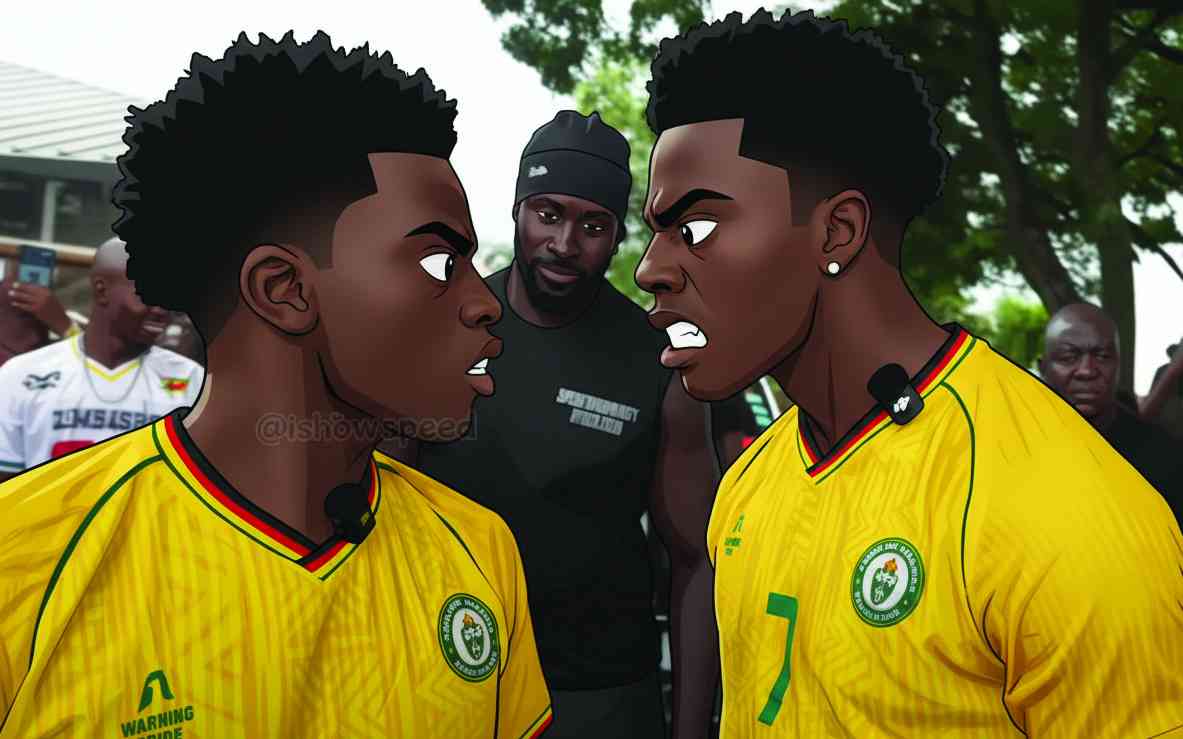
Growing up in Zimbabwe one might have come across the famous liberation song by Clive Malunga titled Nesango, which encapsulates the sacrificial toil in the bush by the liberation war Heroes. When I started reading Whispers of Soil: The Rise of Gwenyambira, I quickly reverberated the sounds of this song as it brought with it memories of war and the struggle by our liberation war heroes to liberate Zimbabwe. It is beyond any shadow of doubt that Tendai “Andre” Kwenda’s book Whispers of Soil: The Rise of Gwenyambira is open to avenues of the identity of Africans and their “Afrikaness” and not forgetting the “social embargo” imposed by the whites.
Use of songs
Overall, the novel is musical in nature which in turn generates drama. The song Nesango is vital in addressing the causes of war. It is commendable that the author makes use of the song by the late Oliver Mtukudzi, Mbabvu Yangu, Andre X featuring Mbira dzeNhemamusasa and songs by modern day artists such as Jah Prayzah and Gemma Griffiths. Such honourary features add more flavour to the text because it strengthens the cause to be identified as Zimbabweans.
Gwenyambira as a metaphor of African identity
Gwenyambira by definition refers to the holder of everything — the ancestors of our humanity and moral behaviour.
The diction employed by the author has a flavour of Afrikaness hence he articulately promotes multi-culturalism through various diverse and multi-cultural languages from Africa.
The author also ensures that the rise of Gwenyambira is connected to the ancestors and ancestry. Here Andre X seems to be championing Africans to take pride in their identity.
In order to cement the identity issues which, seem to be a surgical issue in Africa, songs such as Zimbabwe by Bob Marley become an important tool employed by the author in capturing the calls for the liberation of Zimbabwe.
- In the groove: Celebrating the life of James Chimombe (1951-1990)
- In the groove: Celebrating the life of James Chimombe (1951-1990)
- Building Narratives: Whispers of Soil: A clarion call to preserve African pride
- Mbuya Stella Chiweshe, Zim’s music ambassador: Malunga
Keep Reading
Bob Marley is ordered by a white director to wrap up his performance due to time but he defies the order–defiance which one might signal as the fruits of inevitable black independence.
Though ordered to stop, he goes on for an extra two hours in what becomes a witty act to symbolise a new dawn for black Africans.
His song titled Zimbabwe eventually marks the birth of a Nation, Dzimba Dzamabwe, house of stones.
In Whispers of Soil, Gift nicknamed, Nesango suffers a defeat when he loses his mother soon after his birth. To add more worries to the milk smelling-orphan, his father appears to be a defeated soul, a drunkard, smoke and sex addict, and a measly man. He is buried with a puff adder, an occurrence which is foretelling of bad omens in Africa.
In the text, a puff adder is a symbol of the most dreaded evil hence to bury a man with a puff adder contradicts the Holy water being sprinkled in the coffin by the Man of Cloth, Friar Ribeiro.
At only 10 years of age, the poor child understands the prevailing fate which might envelope him into the world of sterility, one that lacks progress–and one that could pull down any sane human being unexpectedly.
Post-independence Zimbabwe and Mugabe’s legacy
In Whispers of Soil: The Rise of Gwenyambira, Andre X successfully employs the art of consciousness when he takes the reader down the memory lane by reflecting on the joviality which came with the Independence of Zimbabwe.
He echoes the famous speech by the late former president of Zimbabwe Robert Mugabe: “If yesterday I fought you as an enemy today you have become my friend”.
Though Mugabe is not directly mentioned as the author or owner of the quote, the author does so strategically to juxtapose of what would follow such an eloquent speech in later years and that being “Mugabe’s legacy”.
The speech was as if it was said by someone else hence the reference to the person as “man”. The very admirable part in the text is that Andre X does not mince words in what came of the joviality soon after the discovery of diamonds in Chiadzwa and the increase in crime and gun-related cases in Zimbabwe.
The author thus laments the betrayal of the core values of the Chimurenga war of liberation after the unsavoury, barbaric, pure evil sexual violation and subsequent cold-blooded murder of Stephanie.
Gun violence, which had become the basis of the new state, is nonetheless less mentioned in the book.
The colour bar had been defeated but not eliminated from the so-called “civilised schools of the elite”.
The scars of colonial Sjambok still manifested in the “elite schools. Black people, though independent were subject to a racial slur, as evidenced by Nesango’s colleagues who are confined to a corner of a class.
Those who dare question white superiority like Kundai are subjected to unrealistic manual punishment. While the author perfectly captures the beauty of the surrounding environment: the trees, atmosphere, and magnificent of the nation are not keen in the book, the effects of mystery fires is released and this has direct negative consequences on the environment.
It is my personal view that Tendai “Andre X” Kwenda’s Whispers of Soil: Rise of Gwenyambira is indeed a political, social, and economic masterpiece. Religion is not spared as Andre X goes an extra mile in chronicling the indoctrination of Africans by the colonialists in the context of expressing pride in African Traditional Religion, which seems to be metaphorically represented by the mbira.
Fungai Sox works at TisuMazwi — a communication-centered social enterprise which specialises in book publishing and storytelling projects. He writes in his personal capacity. For feedback contact him on 0776 030 949, follow him on Twitter @AntonySox, or connect with him on LinkedIn on Fungayi Antony Sox.










